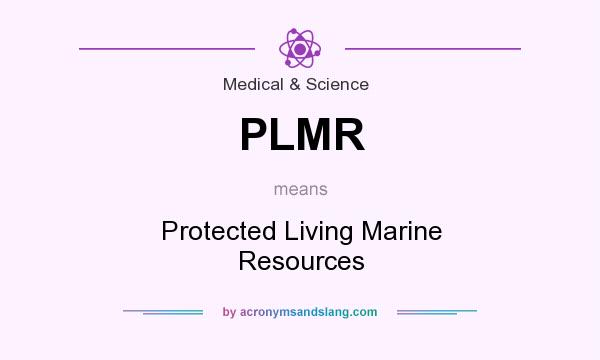What does PLMR mean?
PLMR means Protected Living Marine Resources
This acronym/slang usually belongs to Medical & Science category.
What is the abbreviation for Protected Living Marine Resources?
Protected Living Marine Resources can be abbreviated as PLMR

|
|
Most popular questions people look for before coming to this page
| Q: A: |
What does PLMR stand for? PLMR stands for "Protected Living Marine Resources". |
| Q: A: |
How to abbreviate "Protected Living Marine Resources"? "Protected Living Marine Resources" can be abbreviated as PLMR. |
| Q: A: |
What is the meaning of PLMR abbreviation? The meaning of PLMR abbreviation is "Protected Living Marine Resources". |
| Q: A: |
What is PLMR abbreviation? One of the definitions of PLMR is "Protected Living Marine Resources". |
| Q: A: |
What does PLMR mean? PLMR as abbreviation means "Protected Living Marine Resources". |
| Q: A: |
What is shorthand of Protected Living Marine Resources? The most common shorthand of "Protected Living Marine Resources" is PLMR. |
Abbreviations or Slang with similar meaning
- ALMRV - Assessment of the Living Marine Resources in Vietnam
- APLMR - Atlantic Protected Living Marine Resources Initiative
- APLMRI - Atlantic Protected Living Marine Resources Initiative
- LMRSM - Living Marine Resources Science and Management
- MARIC - Marine Resources Information Center
- MARMAP - MArine Resources Monitoring, Assessment, and Prediction program
- MRCTF - Marine Resources Conservation Trust Fund
- SOLMAR - Sound, Ocean and Living Marine Resources
- ELMR - Estuarine Living Marine Resources
- LARRI - Living Aquatic Resources Research Institute
- LMRIS - Living Marine Resources Information System
- LMRR - Living Marine Resources Research
- LCR - Living Coastal Resources
- LMRCSC - Living Marine Resource Cooperative Science Center
- PLMRP - Protected Living Marine Resources Program
- SULMAR - Sustainable Use of Living Marine Resources
- LMR - Living Maritime Resources
- lmrs - Living Marine Resources
- LMR - Living Marine Resource
- LMR-ES - Living Marine Resources–Ecosystems Survey